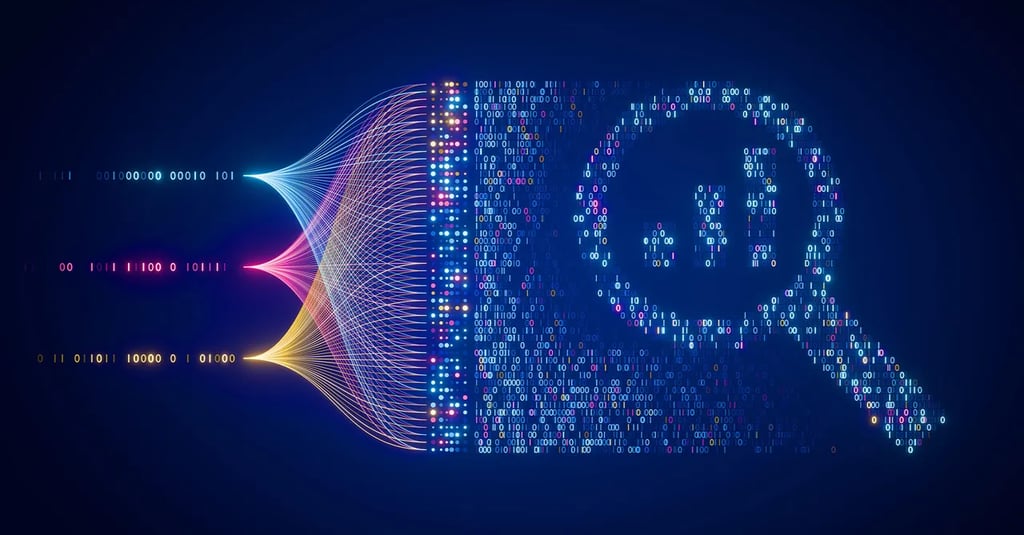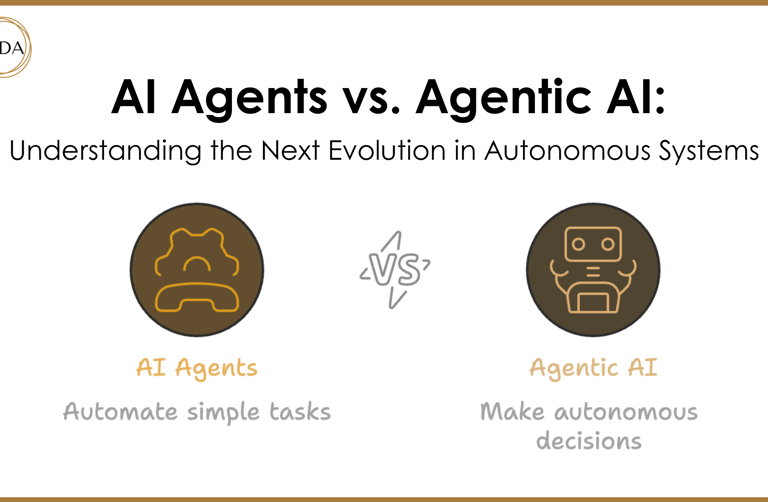Agentic AI: The Future Partner That Thinks, Learns, and Acts Like Us
Artificial Intelligence AI has rapidly evolved from simple rule based systems to highly sophisticated algorithms capable of learning, adapting and making decisions. Yet not all AI is created equal. The emerging concept of agentic AI . AI systems designed to act autonomously, make strategic decisions and pursue goals promises to surpass traditional or "normal" AI in both capability and impact. But what exactly makes agentic AI superior? This article explores why agentic AI outperforms normal AI and what it means for the future of technology.
TECHNOLOGY
Thinkbrief
7/17/20252 min read


Artificial Intelligence has come a long way. From simple programs that follow set rules to systems that can learn and adapt, AI is growing smarter every day. But there’s a new kind of AI emerging—called agentic AI—that feels less like a tool and more like a partner. Unlike traditional AI, which reacts to instructions, agentic AI takes initiative. It sets its own goals, makes decisions, and learns from its surroundings. This shift is changing how we think about technology and its role in our lives.
Traditional AI is great at doing specific jobs—like recognizing faces, translating languages, or suggesting movies. But it usually waits for input and follows a fixed set of rules or patterns. It doesn’t decide what to do next on its own.
Agentic AI is different because it acts independently. Imagine it as an explorer rather than just a follower. It observes, thinks ahead, and figures out the best way to reach its goals. It’s not just responding to commands; it’s making choices, just like a person might when faced with new challenges.
Why Does This Matter?
Think about a delivery drone navigating through a busy city. Traditional AI might stick to a planned route and only change course if forced. But an agentic AI drone can notice sudden obstacles, changing weather, or traffic and adjust its path instantly to ensure the package arrives safely and on time. It’s like having a driver who can think on their feet.
Agentic AI doesn’t just react—it thinks about what matters most. In business, this means balancing costs, schedules, and customer needs all at once. It’s like a smart manager juggling priorities to get the best results, rather than a worker doing just one repetitive task.
Life is unpredictable, and agentic AI understands that. It learns from each experience, adapting to new information without needing to be reprogrammed. Whether it’s a robot adjusting to a new factory setup or a security system spotting new threats, agentic AI keeps getting better with time.
Agentic AI doesn’t rush. It considers options, weighs risks, and plans ahead. In healthcare, this could mean choosing treatments that balance immediate needs with long-term health. It’s not just about quick fixes—it’s about thoughtful care.
Agentic AI is also designed to collaborate. It can understand other agents—whether humans or machines—and work together towards shared goals. This teamwork makes complex tasks smoother and more efficient.
The Human Side of Agentic AI
What’s exciting about agentic AI is how it mirrors human qualities—curiosity, foresight, adaptability. It’s not perfect, and with great power comes responsibility. We need to ensure these systems act safely, transparently, and ethically. But when done right, agentic AI can be a true partner, helping us solve problems and explore new possibilities.
Agentic AI is more than just smarter technology—it represents a shift in how we relate to machines. Instead of tools that just follow orders, we’re creating partners that can think, learn, and grow with us. This opens doors to innovations we can only imagine today.
As we move forward, the challenge will be guiding agentic AI with care and wisdom, making sure it aligns with our values and goals. But one thing is clear: the future of AI is not just about intelligence, it’s about collaboration and shared growth.

